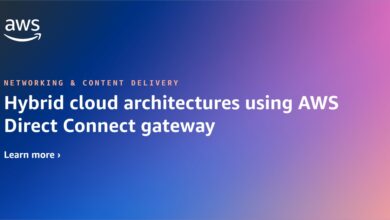Blind cost management waste Asia-Pacific firms’ cloud spend

Companies are fraught with uncontrolled and wasteful cloud spend, and cost remediation tactics are introduced too late or without a full picture of the environment, according to a new report from Boomi.
Conducted by Forrester Consulting in December 2023, the independent study covered 420 cloud and real-time data decision-makers at companies across North America, Europe, and Asia-Pacific region.
Findings show that 87% of companies in APAC exceeded their set cloud budgets over the past two years, with 69% of these companies foreseeing their cloud budgets to exceed this fiscal year.
Although the study shows APAC business leaders prioritising CCMO (cloud cost monitoring and optimisation) tactics earlier in the cloud development process (62%), most companies lack proactive strategies at the earlier architecture level.
Just 5% of APAC decision makers report their cloud cost remediation strategies are as proactive as possible, and only two in every five say they contain costs at the solution architecture stage.
While APAC organisations are aware that they could optimise cloud costs at the solution architecture level, less than half of companies have the strategy in place to resolve perennial problems, such as excessive storage (57%), lack of integration strategy (39%) and overconsumption of bandwidth (45%).
“We believe the findings are a clear example of integration being left out of the cloud cost equation,” said Ed Macosky, chief product and technology officer at Boomi.
“When systems are disconnected and data is siloed, companies are only seeing part of their organisations’ cloud cost picture, and this lack of visibility impacts tracking and decision making,” said Macosky.
When asked how difficult it is to track areas of cloud spend with the CCMO tooling currently in place, leaders stated data management as the most difficult undertaking, followed by egress charges (like fees for moving data in and out of the cloud), with time and resources needed to build and maintain app integrations as the third most difficult area to track.
Thomas Lai, VP and general manager of Boomi in APJ, noted that 63% of APAC respondents believe their CCMO recommendations are only as good as the data their company can provide. However, 40% are finding it challenging to address the fundamental issue causing their excessive cloud spend.
“This issue arises due to many organisations perceiving integration as a separate entity, when it holds great potential to serve as a control layer in managing cloud costs,” said Lai.
Finding from APAC also show that cloud workloads and costs will increase even more rapidly over the next two years, with decision makers expecting applications in IT ops (51%), hybrid work (55%), software creation platforms and tools (42%), and digital experiences (40%) to rise at the fastest rates.
Further, similar to CCMO tooling, emerging FinOps practices are not spared the challenges associated with reactive cloud cost remediation strategies. 59% of APAC respondents stated visibility into costs associated with FinOps roles remains elusive, significantly more than that of North American respondents (43%) and European respondents (40%).
Meanwhile, a lack of cloud architecture that supports cost containment at the integration level prevents leaders (37%) from advancing their FinOps cost control initiatives.
In addition, 75% of respondents agree that an integration platform that connects apps, data, and people is a game changer for improving cloud efficiencies and reducing overall cloud spend from the solution architecture stage.
Among those using integration platform as a service (iPaaS) solutions, 63% report experiencing more effective cloud cost management, 59% report increased data visibility and reporting capabilities across stakeholders, and 63% report improving cloud spend governance.




